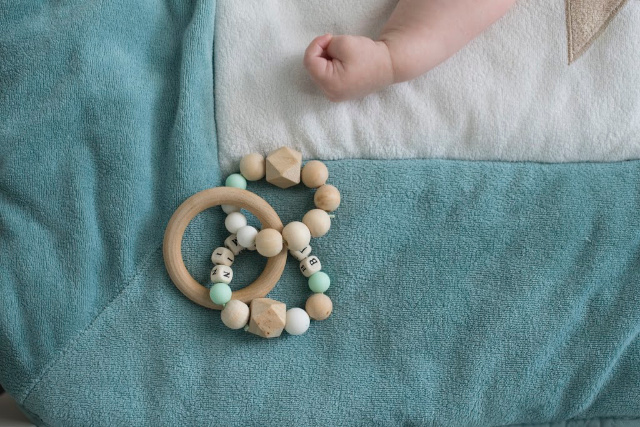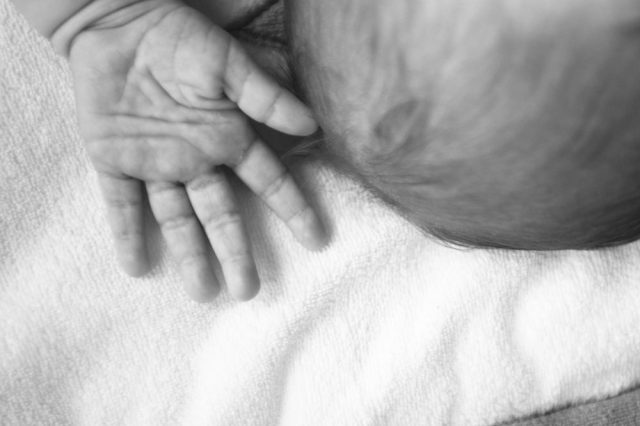47 Ways You Can Make the Most of Rest Days

As soon as you first hold your baby in your arms, you realise that every cliché about parenthood is true: it’s one of the most joyful, love-filled yet hardest things you’ll ever do.
Taking care of a newborn round-the-clock can be overwhelming for any mum and dad, but when you have a chronic illness like MS, fibromyalgia or lupus, parenting comes with a whole extra set of challenges. Unpredictable symptoms, severe fatigue and physical limitations can pose considerable obstacles when you’re looking after a little one.
Here are 12 practical tips for taking care of your baby and yourself when you’re chronically ill.
Don’t compare yourself to other families. What works for them might not work for you. Although it’s natural to worry about how you’ll balance your chronic illness with raising a happy child, don’t let feelings of guilt, anxiety or disappointment consume you.
There are a million different ‘right’ ways in which you can provide for your baby’s needs, nurture their development and show them your unconditional love. You just have to find the one that suits your family best.
It’s something every mum or dad will face: a leaking diaper as you’re rushing out the door, being up all night with a crying baby or a sudden trip to the doctor’s office. But when you’re chronically ill, your physical reserves are already low, which makes it more challenging to deal with these unforeseen situations.
It helps to have some sort of backup plan in place for days that demand extra energy. Think of: always having your diaper bag packed and ready to go, stocking up on homemade freezer meals when you’re too tired too cook or ordering your groceries online.
If you’re fortunate to live in a country with postnatal care for a new mum and her baby, make the most of it. Snuggle up (safely) with your newborn and rest up – giving birth is a tough job!
I’m sure you’ve heard the age-old advice to nap when your baby’s napping. That’s easier said than done, especially in those first weeks when naps are frequent but short, because you probably also need to eat, shower and quickly clean up the worst mess during those times. Still, try to lie down and close your eyes at least once a day – that pile of laundry can wait.
Another strategy is to sneak moments of relaxation into your caregiving routine, like closing your eyes and practicing deep belly breathing when you’re rocking your little one to sleep. Not only will it calm your mind and body, but hearing your slow breathing and heart beat can also help your baby doze off. A two-minute meditation or a quick body scan when your angel’s happily nursing might also save your sanity when you’ve had too many sleepless nights.

During my first weeks as a mum, when I walked around in a daze from a lack of sleep and the non-stop caregiving, I made a simple mental checklist of things I really had to get done every day. For me, that meant getting my baby and myself properly fed, washed and in clean clothes, as well as taking our daily vitamins. Everything else – household chores, going outside, having people come over – was a bonus.
As soon as those daily non-negotiables became an automatism, something I no longer had to think about, I added an extra item to the list, like doing prescribed physical therapy exercises, reading a bedtime story and going for a daily walk. By slowly building new habits as my energy levels increased, I was able to keep up with my baby’s natural development without feeling overwhelmed or guilty for not doing everything I felt I should be doing.
So decide for yourself: which daily activities are important to your and your baby’s wellbeing? Maybe getting a warm shower is a priority for you (it is for me!), even if that means getting up before your kiddo wakes up. Maybe you need 10 minutes of ‘me time’ every day to feel good. Whatever your first concerns, make your own doable (!) Daily Non-Negotiables check list – and take a break when you’ve ticked all your boxes. Remember, everything extra is nice but not necessary.
There’s a reason why on airplanes they tell parents to put on their own oxygen masks first. Because if don’t take care of yourself, how will you be able to take care of your baby?
Instinctively you might feel like you have to push through pain and fatigue to look after your little one, but when you finally hit a wall of exhaustion or worse, a flare-up or illness, both you and your family are worse off than before.
You’re in this for the long haul. Parenting is a marathon, not a sprint.
So plan and act accordingly. Don’t always put yourself last; your health and happiness matter.
Go to bed early. Eat nutrient-rich meals that require little effort to make, such as overnight oats, veggie frittatas or stir fries. Make time for a relaxing bath or a weekly yoga class, to calm your multitasking mind and relax your sore muscles. Do something just for you whenever you can. If mama ain’t happy, nobody’s happy.
Toting around your baby all day, hunching over the crib and repetitive tasks like pumping can take a physical toll on your body. By performing your caregiving activities with good body posture, you can minimize the strain on your muscles and joints.
Think of: bending your knees whenever you pick something up from the floor, lifting from your knees not your back and carrying your child close to your body. You should also make sure things like the changing table and the handle bar on your stroller are at the right height for you. Check out more tips for preventing injury as an infant caregiver here.

Of course you want what’s best for your baby. But trying to be supermom or dad, wanting to do it all and do it perfectly, isn’t healthy for anyone. So while it’s good to hold high standards regarding your baby’s care, make sure you have a backup plan for tough days.
For example, if feeding your child fresh, homemade dinners is as important to you as it is to me, have a healthy alternative on hand for those occasions when you’re too tired/sick/busy/stressed to cook. You could buy good quality baby meals or stock your freezer with baby-proof leftovers.
(And yes, sometimes even your backup plan will let you down. Just remember: tomorrow is a new day. Your little one won’t be harmed by one so-so meal or one missed nap. You’re doing the best you can.)
During the first months of your newborns life, he or she won’t have anything resembling a daily routine. You basically respond to your baby’s needs when he/she needs it.
But after about three months, you may notice that your infant’s sleeping and feeding habits are becoming more consistent and predicable. Paying attention to your baby’s cues can help you understand their natural rhythm and get into a regular routine.
Knowing what to expect and when makes taking care of your baby a lot more relaxed – and makes it easier for you to manage your energy. Now I’m not talking about following a strict, time-driven schedule, but about bringing some structure to your days. Many books and articles have been written on creating a routine for your baby, so experiment with what works for your unique situation and parenting philosophy.
If you share your baby’s care with your spouse and/or your child’s other parent, play to both of your strengths when you’re dividing parenting and household responsibilities.
Is your husband a morning person and you’re more of a night owl? Then it might make most sense for your partner to go to bed early and catch some extra sleep so he can do the ‘morning shift’, while you respond to your newborn’s needs late at night.
Are you physically limited by your illness? Maybe you can be the ‘home manager’ – taking care of grocery shopping lists, going to appointments, doing laundry – leaving the more strenuous tasks up to your partner when possible.
However you decide to partner up together, follow your natural rhythms and characteristics instead of sticking to traditional gender roles per se.

At the beginning of this year, I was suddenly struck by a highly contagious ear infection and in no state to look after my daughter. Which was a pretty big problem, since I take care of her during the day. Thankfully, our entire family chipped in to help, but having to worry about childcare and getting food on the table on top of being ill is stressful.
So instead of being surprised by the inevitable, think ahead of how you will handle sick days. Do you have any family or friends nearby who could babysit when you’re too ill? Does your partner have flexible work hours so he or she can help out (getting your baby dressed, dropping him/her off at childcare, be home in time to make dinner)?
Having a support system in place that covers all your ’emergency bases’ can be a life saver when you’re suddenly in need of a helping hand.
Another cliche, but it takes a village to raise a child – even for healthy parents.
So don’t be afraid to ask for help when you need it. That doesn’t just mean turning to family members to babysit a few hours or run some errands for you, but also asking for support if you’re struggling with recurring feelings of depression and anxiety. You’re not alone; share your feelings with other new mums, join a support group or contact your doctor for professional help.
Being overwhelmed and exhausted are normal feelings for any (new) parent. Obviously not every mum or dad has to deal with pain, fatigue or physical limitations, but all parents face their own physical and emotional challenges.
How do you balance parenting and living with chronic illness? Which tips or tricks have helped you out most? Please share them with us in the comments!

If you enjoyed reading this article, you might also like: